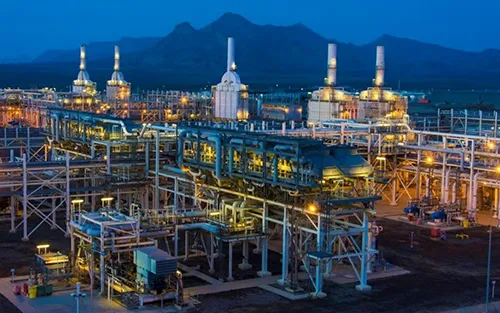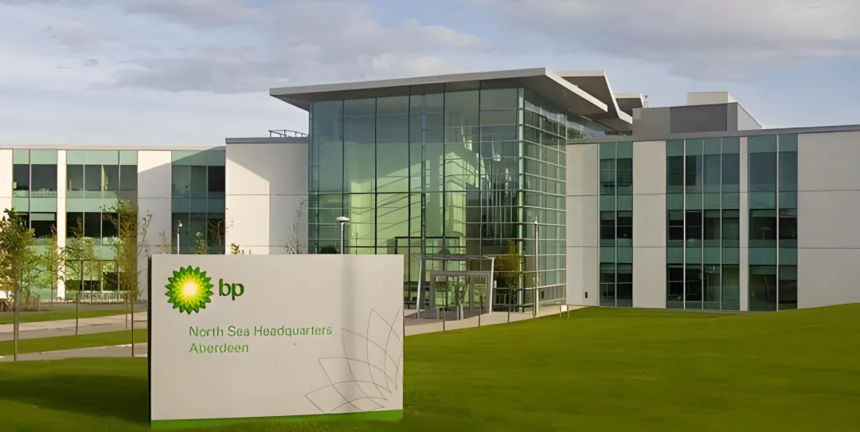NEWS CENTER
|
ABB wins big electrification order!Global automation giant ABB has won a large electrification order from British Petroleum (bp). As the operator of the Sangachal terminal in Azerbaijan, BP is collaborating to support the electrification and grid stability of one of the world’s largest oil and gas terminals. The terminal covers an area of more than 688 hectares (an area equivalent to more than 800 football fields) and will be electrified when connected to the Azerbaijan national grid.
The order is part of a five-year global framework agreement signed with the terminal operator in September 2024. ABB will supply and integrate four synchronous condensers, designed to site-specific requirements, to facilitate the decommissioning of the existing gas turbines. The Sangachar terminal is located 55 km south of Baku and has a daily processing capacity of 1.2 million barrels of oil and about 81 million standard cubic meters of natural gas. ABB's related project started in February 2025 and is expected to take about 24 months to complete. ABB’s electrification and automation solutions will play a key role across the entire scope of the contract, from initial system studies to detailed engineering, installation and commissioning, ensuring stability and continuity of output at the Sangachal terminal. ABB's integrated solution reduces the number of synchronous condensers required at the terminal, significantly reducing project costs. At the same time, ABB Ability System 800xA distributed control system (DCS) will be deployed to connect with the synchronous condensers to provide monitoring and management functions for plant operators. ABB's synchronous condensers have a small footprint and ensure efficient and reliable operation of power grids and electricity networks. They are designed to provide short-circuit capacity, inertia and reactive power to the grid - as more renewable energy sources are added to the grid, synchronous condensers play an increasingly important role in maintaining grid stability. Azerbaijan’s national grid is integrating low-carbon energy sources to meet its climate goals: increasing renewable energy capacity to 30% by 2030 and reducing greenhouse gas (GHG) emissions by 40% by 2050. The country is gradually increasing the share of renewable energy in its electricity supply from just over 6% in 2022 to 8% in 2023.
British Petroleum (BP) is one of the world's largest oil and petrochemical groups. It was founded by William Knox D'Arcy in 1909 and is headquartered in London. Its business scope is wide, covering oil and gas exploration and production, oil refining and sales, petrochemical product production and sales, etc., and also involves coal, non-ferrous metals, computers and other fields. BP is engaged in production and business activities in more than 70 countries around the world and has 74,500 employees. In the Fortune magazine's "Global 500 List", BP has been ranked among the top many times, ranking 18th and 35th in 2021 and 2022 respectively. BP has been doing business in China since the early 1970s and is one of the leading foreign-invested enterprises in China's oil and gas industry. ABB is a globally influential electrical and automation multinational company. It was formed in 1988 by the merger of Sweden's ASEA and Switzerland's BBC, and is headquartered in Zurich, Switzerland. Its business is extensive, covering electrification, automation, motion control, robotics and discrete automation, process automation and other fields. Its product range is rich, including various controllers, robots, electrical equipment and related software, which are widely used in many industries such as energy, chemicals, electricity, manufacturing, transportation, etc. At present, ABB has branches in more than 100 countries around the world, with about 110,000 employees, business all over the world, and its shares are listed on the Swiss Stock Exchange (ABBN) and Nasdaq Stockholm (ABB). Per Erik Holsten, President of ABB’s Energy Industries division, said: “ABB is helping existing energy infrastructure to operate leaner and cleaner by increasing efficiency through automation and reducing energy consumption and carbon footprint through electrification. We are delighted to provide site-specific electrification and automation solutions to support BP in decarbonizing the energy ecosystem in a region where we have been active for more than 25 years.” The cooperation between ABB and BP at the Sangachar terminal in Azerbaijan is not only an in-depth practice based on a long-term framework agreement between the two parties, but also highlights the collaborative efforts of the energy industry in electrification transformation and low-carbon development. With the implementation of key technologies such as synchronous phase regulators, this world-class oil and gas terminal will accelerate the transformation to a clean and efficient operation model while improving the stability of the power grid, injecting important impetus into Azerbaijan's climate goals. And ABB, with its technological accumulation in the fields of electrification and automation, will further consolidate its core position in the global energy transformation and provide reference solutions for the upgrade of energy infrastructure in more regions. |


